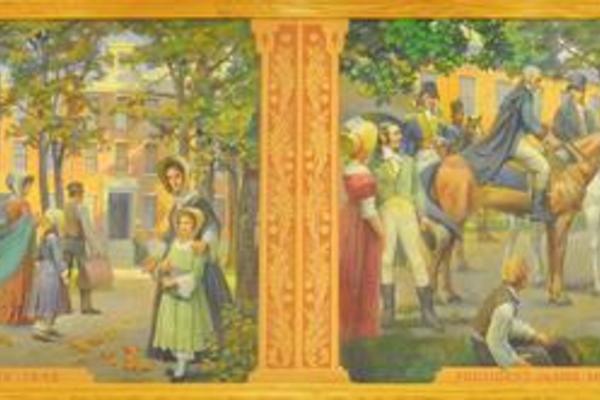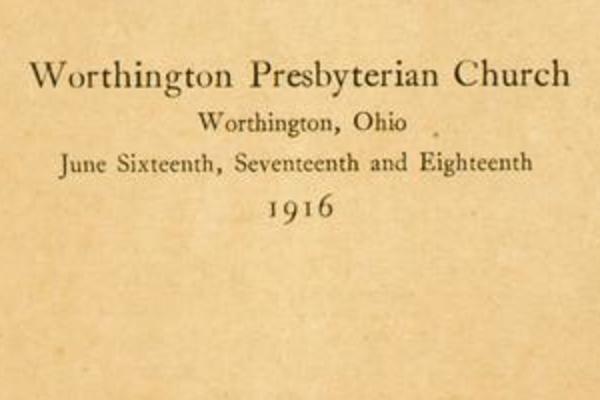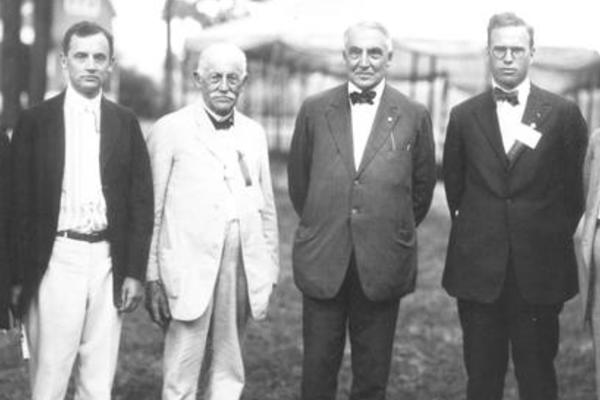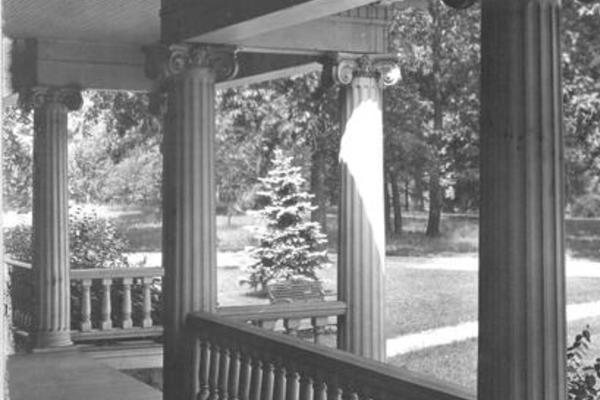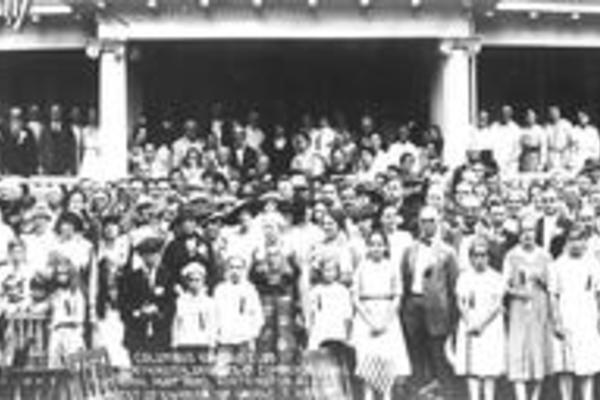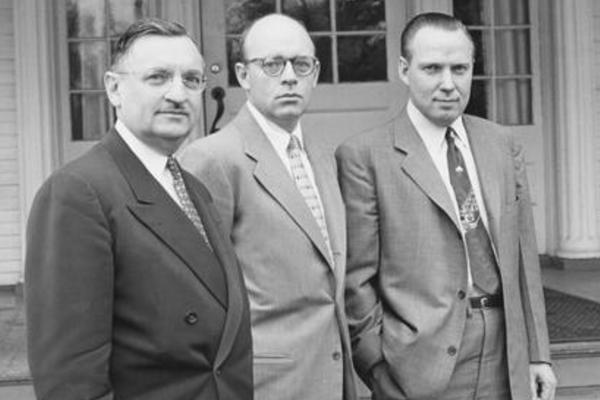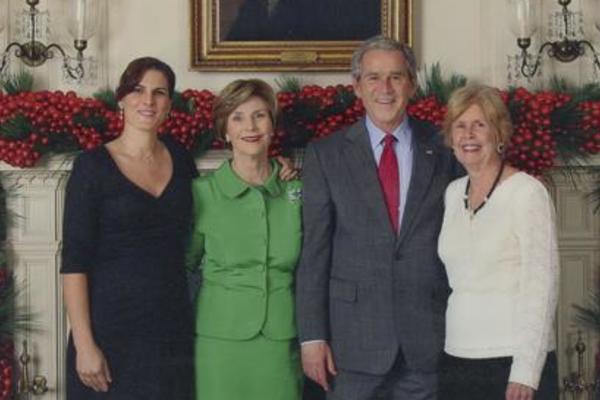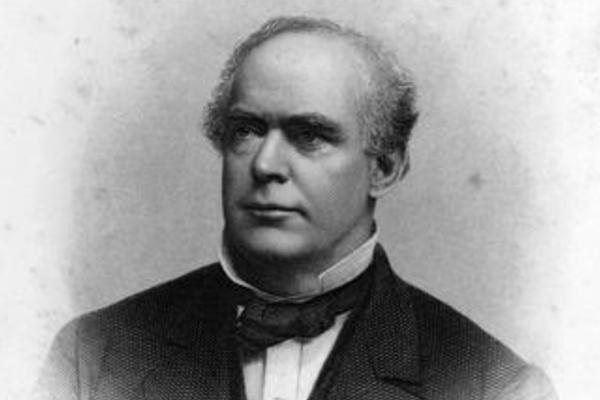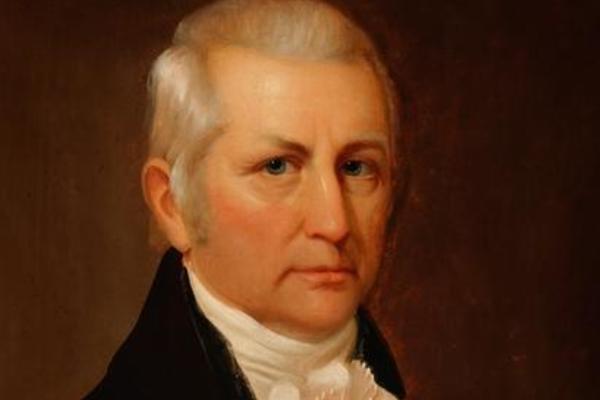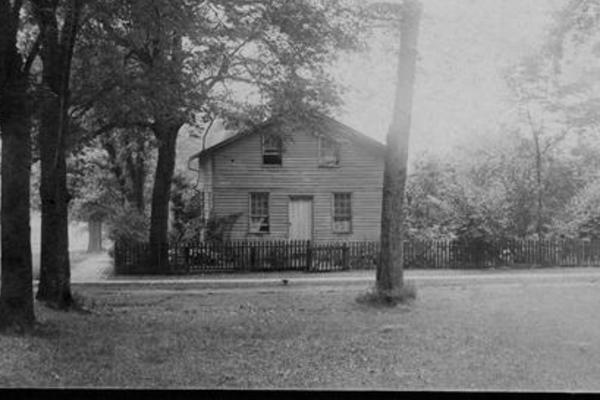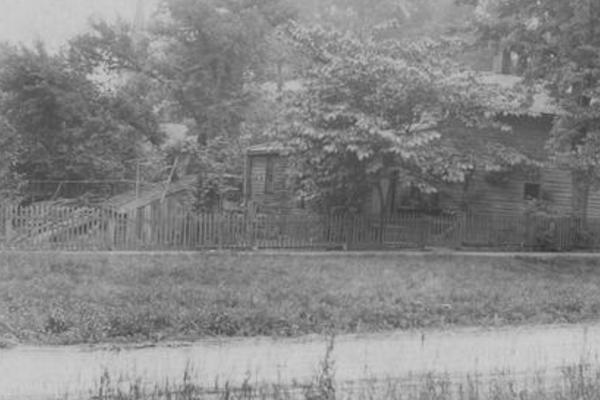Thursday,
October 29, 2020
9:30am
Humans have long been described as political animals, though we also are frequently cautioned against making hot-button issues like politics a conversation topic. While the current political landscape may be fraught, a look through Worthington Memory offers a rich history of political engagement and connections in the town. As November is an important month for U.S. politics, this month's exhibit highlights Worthington’s presidential connections, political figures and voting victories for women.
Worthington’s ties to the political date back to the village’s inception. Worthington itself is named for Thomas Worthington, who aided the Scioto Company in purchasing the village’s land in 1803. Worthington was one of Ohio’s first senators and served as Ohio’s sixth governor from 1814-1818. The village’s founder, James Kilbourne, also went on to serve in the U.S. House of Representatives as well as the Ohio legislature. Another prominent political figure of the 19th century, Salmon P. Chase, spent time in Worthington in the care of his uncle Philander Chase. An ardent opponent of slavery, Salmon was an early Republican, serving terms as a senator and as Ohio’s governor before becoming Abraham Lincoln’s secretary of the treasury. Following his time in the presidential cabinet, Lincoln nominated Chase to serve as the nation’s sixth chief justice of the U.S. Politicians from Worthington certainly left their mark on the national stage.
Worthington also boasts connections to U.S. presidents, having met and hosted them. Soon after Worthington’s founding, President James Monroe visited as part of his tour of the northern states in 1817. Although no photographs of the event exist, his visit is imagined in one section of a huge mural created in the early 1960s for the Worthington branch of City National Bank. The section, an interpretation of what may have occurred, shows Monroe on horseback greeting residents, including James Kilbourne, near the Village Green. The 40-foot-long mural currently hangs at Old Worthington Library, although plans are in the works to return it to the Worthington Historical Society, which owns it, in late 2020 or early 2021.
The Worthington community also had family ties to presidents Woodrow Wilson and Warren G. Harding. Thomas Wilson, pastor at Worthington Presbyterian Church from 1849-1857, was Woodrow’s grandfather. The younger Wilson became the country’s 28th president and saw the country through World War I. In 1916, President Wilson wrote a letter to Worthington Presbyterian to mark the church’s centennial. Worthington's ties to Harding are through the 29th president’s brother, George T. Harding II, who established the Harding Hospital (originally the Columbus Rural Rest Home) in Worthington. The president’s brother, along with several members of the Harding family, practiced medicine there, contributing to studies on mental illness. Harding gave his first address as the Republican candidate for president on August 11, 1920, from the facility's porch.
Worthington residents have also connected to presidents through work. Worthington High School graduate Claire Shipman and Worthington resident Jill Ensminger had the opportunity to meet the 43rd president, George W. Bush. Shipman, a journalist, worked as a White House correspondent for NBC and covered the White House while working for CNN.
2020 marks the 100th anniversary of women gaining the right to vote through passage of the 19th Amendment, which opened the door to political involvement for Worthington women. Debates regarding women’s suffrage frequently graced the court of public opinion in the 19th century as well as the beginning of the 20th century. Discussions about the vote were recorded in local newspapers for both Worthington and Westerville. The first woman to cast a vote in Worthington was Maude Mabra, an African American woman who worked as the cook at the Old Worthington Hotel. At age 84, Mabra recounted the story of her historic vote in an August 30, 1970 "Columbus Dispatch" article, explaining that she voted early in the day so she and her husband, who worked as a barber, could arrive on time to work.
Following Mabra’s vote, Worthington women enthusiastically exercised their new right and involved themselves in politics. In 1927, Worthington resident Ernestine Breisch Powell attended the 27th anniversary celebration of the 19th amendment in Washington, representing Ohio as the second vice chairman of the state’s branch of the National Woman’s Party. Volunteers from the Worthington Republican Women also promoted voting in the 1990s as they staffed an annual voter registration booth during Worthington's Market Day events, ensuring others had the opportunity to exercise the right to vote.

